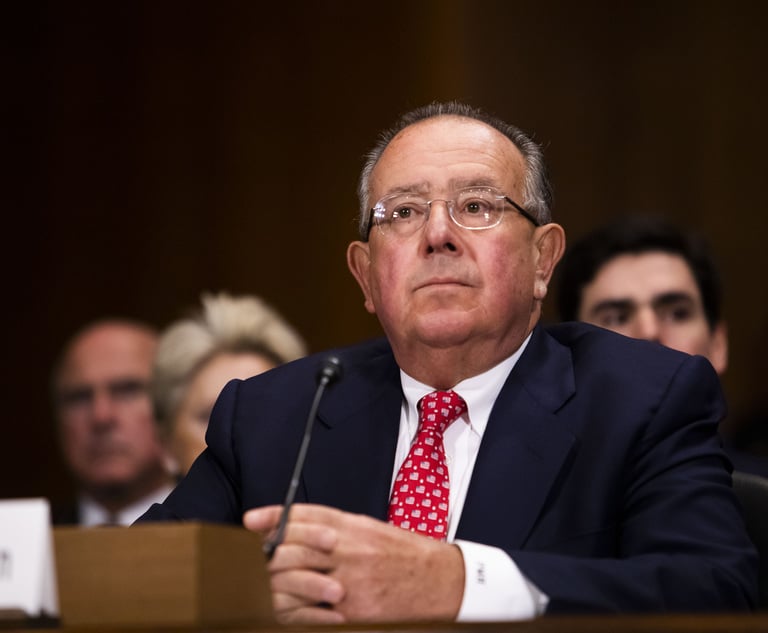 Thomas E. L. Dewey
Thomas E. L. Dewey Settlement Agreement Enforceable in Absence of Written Agreement
While working toward a settlement, it is common for parties to email proposed terms and settlement amounts without necessarily expecting that their communications will be enforceable. 'Elysium Health v. ChromaDex' illustrates that settlement terms can be enforceable without a formal, executed agreement if the parties express mutual assent and intention to be bound.
February 15, 2024 at 10:00 AM
7 minute read
Parties engaged in settlement discussions often reach an agreement in principle by exchanging emails. While working toward a settlement, it is common for parties to email proposed terms and settlement amounts without necessarily expecting that their communications will be enforceable. Elysium Health v. ChromaDex, No. 22-cv-1059 (Lead), 22-cv-1153 (XAP), 2023 WL 7037442 (2d Cir. Oct. 26, 2023) illustrates that settlement terms can be enforceable without a formal, executed agreement if the parties express mutual assent and intention to be bound.
In determining whether to enforce a settlement agreement that was not reduced to a writing, courts will closely examine parties' communications with one another to discern their contemporaneous intent, taking into account the material terms negotiated and words like "we have an agreement". The Elysium decision makes clear that, if the parties indicate that there has been a meeting of the minds and have not expressed an intent not to be bound absent a writing, a court can enforce a settlement agreement between them, even if the agreement also resolves a case pending in another jurisdiction.
This content has been archived. It is available through our partners, LexisNexis® and Bloomberg Law.
To view this content, please continue to their sites.
Not a Lexis Subscriber?
Subscribe Now
Not a Bloomberg Law Subscriber?
Subscribe Now
NOT FOR REPRINT
© 2025 ALM Global, LLC, All Rights Reserved. Request academic re-use from www.copyright.com. All other uses, submit a request to [email protected]. For more information visit Asset & Logo Licensing.
You Might Like
View All
Private Equity Giant KKR Refiles SDNY Countersuit in DOJ Premerger Filing Row
3 minute read
Decision of the Day: Judge Rules Brutality Claims Against Hudson Valley Police Officer to Proceed to Trial

Skadden and Steptoe, Defending Amex GBT, Blasts Biden DOJ's Antitrust Lawsuit Over Merger Proposal
4 minute read
Read the Document: DOJ Releases Ex-Special Counsel's Report Explaining Trump Prosecutions
3 minute readTrending Stories
- 1'Ridiculously Busy': Several Law Firms Position Themselves as Go-To Experts on Trump’s Executive Orders
- 2States Reach New $7.4B Opioid Deal With Purdue After SCOTUS Ruling
- 3$975,000 Settlement Reached After Fall on Sidewalk
- 4'Where Were the Lawyers?' Judge Blocks Trump's Birthright Citizenship Order
- 5Big Law Sidelined as Asian IPOs in New York Are Dominated by Small Cap Listings
Who Got The Work
J. Brugh Lower of Gibbons has entered an appearance for industrial equipment supplier Devco Corporation in a pending trademark infringement lawsuit. The suit, accusing the defendant of selling knock-off Graco products, was filed Dec. 18 in New Jersey District Court by Rivkin Radler on behalf of Graco Inc. and Graco Minnesota. The case, assigned to U.S. District Judge Zahid N. Quraishi, is 3:24-cv-11294, Graco Inc. et al v. Devco Corporation.
Who Got The Work
Rebecca Maller-Stein and Kent A. Yalowitz of Arnold & Porter Kaye Scholer have entered their appearances for Hanaco Venture Capital and its executives, Lior Prosor and David Frankel, in a pending securities lawsuit. The action, filed on Dec. 24 in New York Southern District Court by Zell, Aron & Co. on behalf of Goldeneye Advisors, accuses the defendants of negligently and fraudulently managing the plaintiff's $1 million investment. The case, assigned to U.S. District Judge Vernon S. Broderick, is 1:24-cv-09918, Goldeneye Advisors, LLC v. Hanaco Venture Capital, Ltd. et al.
Who Got The Work
Attorneys from A&O Shearman has stepped in as defense counsel for Toronto-Dominion Bank and other defendants in a pending securities class action. The suit, filed Dec. 11 in New York Southern District Court by Bleichmar Fonti & Auld, accuses the defendants of concealing the bank's 'pervasive' deficiencies in regards to its compliance with the Bank Secrecy Act and the quality of its anti-money laundering controls. The case, assigned to U.S. District Judge Arun Subramanian, is 1:24-cv-09445, Gonzalez v. The Toronto-Dominion Bank et al.
Who Got The Work
Crown Castle International, a Pennsylvania company providing shared communications infrastructure, has turned to Luke D. Wolf of Gordon Rees Scully Mansukhani to fend off a pending breach-of-contract lawsuit. The court action, filed Nov. 25 in Michigan Eastern District Court by Hooper Hathaway PC on behalf of The Town Residences LLC, accuses Crown Castle of failing to transfer approximately $30,000 in utility payments from T-Mobile in breach of a roof-top lease and assignment agreement. The case, assigned to U.S. District Judge Susan K. Declercq, is 2:24-cv-13131, The Town Residences LLC v. T-Mobile US, Inc. et al.
Who Got The Work
Wilfred P. Coronato and Daniel M. Schwartz of McCarter & English have stepped in as defense counsel to Electrolux Home Products Inc. in a pending product liability lawsuit. The court action, filed Nov. 26 in New York Eastern District Court by Poulos Lopiccolo PC and Nagel Rice LLP on behalf of David Stern, alleges that the defendant's refrigerators’ drawers and shelving repeatedly break and fall apart within months after purchase. The case, assigned to U.S. District Judge Joan M. Azrack, is 2:24-cv-08204, Stern v. Electrolux Home Products, Inc.
Featured Firms
Law Offices of Gary Martin Hays & Associates, P.C.
(470) 294-1674
Law Offices of Mark E. Salomone
(857) 444-6468
Smith & Hassler
(713) 739-1250






